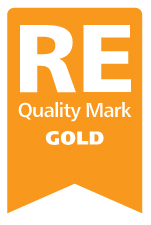Promoting British Values at Calow Primary School
In 2014, the Department for Education emphasised the role that British values can play in education following statements from the Prime Minister and Minister of Education. Further, how well a school promotes such values is an aspect of Ofsted’s inspection process.
British values are promoted in so much of what we already do at Calow Primary School, not least during our assemblies and Collective Worship, Religious Education and Social and Emotional Aspects of Learning (SEAL) sessions. The values are integral to our long-standing visual ethos statements.
As well as actively promoting British values, the opposite also applies: we would actively challenge pupils, staff or parents expressing opinions contrary to fundamental British values, including ‘extremist’ views.
The term ‘British values’ might be slightly misleading in that these values are integral to so many countries throughout the world – they differ in no way from the values of most western European countries, for example.
Being part of Britain
As a School, we value and celebrate the diverse heritages of everybody at Calow Primary. Alongside this, we value and celebrate being part of Britain. In general terms, this means we celebrate traditions for example, Harvest Festival during the Autumn term, and what could be more British than a visiting pantomime each year! We also value and celebrate national events, examples include the Queen’s Platinum Jubilee and Olympics.
Furthermore, children learn about being part of Britain from different specific perspectives in the school's curriculum.
Democracy
Children, parents and staff have many opportunities for their voices to be heard at Calow Primary. Democracy is central to how we operate.
An obvious example is our School Parliament. The election of the School Parliament members reflects our British electoral system and demonstrates democracy in action: candidates make speeches, pupils consider characteristics important for an elected representative, pupils vote in secret using ballot boxes etc. Made up of two representatives from each class, the School Parliaments meets regularly to discuss issues raised by the different classes. Other examples of ‘pupil voice’ are:
- Digital Leaders
- Eco Committee
- Play ground Pals
- Anti-bullying Ambassadors
- Arts Ambassadors
Pupils are always listened to by adults and are taught to listen carefully and with concern to each other, respecting the right of every individual to have their opinions and voices heard. We encourage pupils to take ownership of not only their school but also of their own learning and progress. This encourages a heightened sense of both personal and social responsibility and is demonstrated on a daily basis by our pupils.
The School also participates in Local Democracy Week and UK Parliament Week and has invited high profile visitors such as the High Sheriff of Derbyshire and the Mayor of Chesterfield to visit and speak with the children. We have organised visits to Parliament and to the local Council Chamber.
Rules and laws
The importance of rules and laws, whether they be those that govern our School or our country, are referred to and reinforced often, such as in assemblies and when reflecting on behaviour choices. At the start of the school year, each class discusses and sets its own Class Charter, a set of principles that are clearly understood by all and seen to be necessary to ensure that every class member is able to learn in a safe and ordered environment.
Pupils are taught the value and reasons behind laws, that they govern and protect us, the responsibilities that this involves, and the consequences when laws are broken. These values are reinforced in different ways:
- visits from authorities such as the police and fire service
- during Religious Education, when rules for particular faiths are thought about
- during other school subjects, where there is respect and appreciation for different rules – in a sports lesson for example
Individual liberty
Alongside rules and laws, we promote freedom of choice and the right to respectfully express views and beliefs. Through the provision of a safe, supportive environment and empowering education, we provide boundaries for our young pupils to make choices safely; for example:
- choices about what learning challenge or activity to undertake
- choices about how they record their learning
- choices around the participation in extra-curricular activities
Our pupils are encouraged to know, understand and exercise their rights and personal freedoms and are taught how to exercise these safely, such as in our e-safety. Calow Primary is actively engaged with the UNICEF rights respecting schools agenda and has achieved an Award at Level 2.
Mutual respect and tolerance of those with different faiths and beliefs
Our pupils know and understand that it is expected and imperative that respect is shown to everyone, whatever differences we may have and to everything, whether it is a school resource, a religious belief or whatever. Children learn that their behaviour choices have an effect on their own rights and those of others. All members of the school community should treat each other with respect.
Specific examples of how we at Calow Primary enhance pupils understanding and respect for different faiths and beliefs are:
- through Religious Education, SEAL and other lessons where we might develop awareness and appreciation of other cultures – in English through fiction and in Art by considering culture from other parts of the world for example.
- enjoying a depth of study during Themed Days/Weeks, where we will celebrate and enjoy learning about the differences in countries and cultures around the word (whilst at other times we might consider groups or individuals who might be vulnerable in some way, such as those with disabilities).
- through gaining an understanding of global schools, for example our partnership with a school in France and being recognised with the Award of International Schools status.
- arranging visits and visitors to help children learn about other faiths and cultures. This includes organising visits to places of worship such as churches, cathedrals, gurdwaras and mosques.





